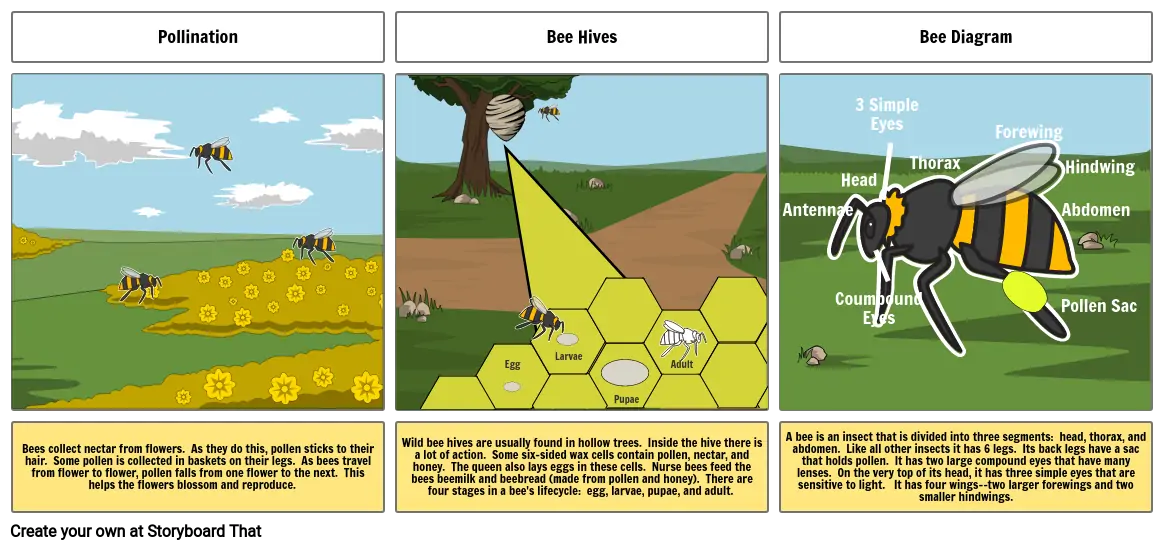Honeybees

Storyboard Text
- Pollination
- Bee Hives
- Egg
- Larvae
- Adult
-
- Antennae
- Bee Diagram
- Head
- Coumpound Eyes
- 3 Simple Eyes
- Thorax
- Forewing
- Abdomen
- Pollen Sac
- Hindwing
- Bees collect nectar from flowers. As they do this, pollen sticks to their hair. Some pollen is collected in baskets on their legs. As bees travel from flower to flower, pollen falls from one flower to the next. This helps the flowers blossom and reproduce.
- Wild bee hives are usually found in hollow trees. Inside the hive there is a lot of action. Some six-sided wax cells contain pollen, nectar, and honey. The queen also lays eggs in these cells. Nurse bees feed the bees beemilk and beebread (made from pollen and honey). There are four stages in a bee's lifecycle: egg, larvae, pupae, and adult.
- Pupae
- A bee is an insect that is divided into three segments: head, thorax, and abdomen. Like all other insects it has 6 legs. Its back legs have a sac that holds pollen. It has two large compound eyes that have many lenses. On the very top of its head, it has three simple eyes that are sensitive to light. It has four wings--two larger forewings and two smaller hindwings.
Over 30 Million Storyboards Created

